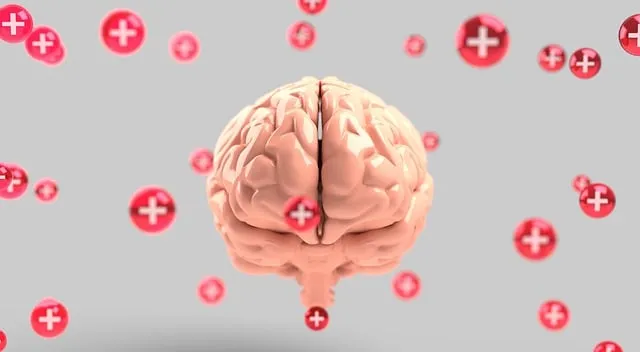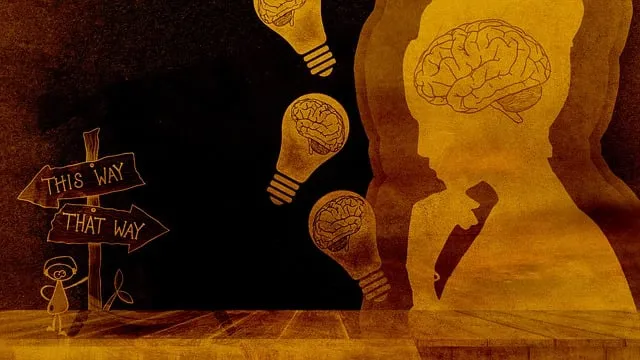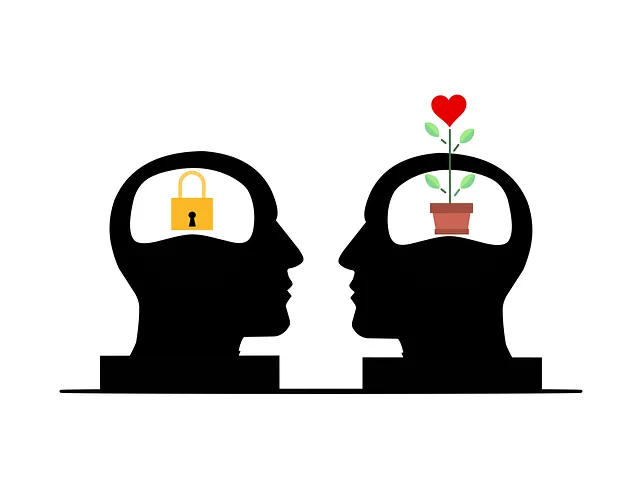Emotional Intelligence (EI) is a powerful tool for enhancing well-being and relationships, and Kaiser Permanente Aurora integrates EI into their healthcare practices, particularly during phone appointments, to improve patient outcomes. They focus on empathy building strategies with cultural sensitivity in mental healthcare, utilizing the Mental Wellness Podcast Series as a platform to share these techniques. This approach revolutionizes mental health care, ensuring supportive environments for emotional healing. By cultivating EI, therapists and clients alike benefit from improved decision-making, job satisfaction, and stronger personal connections, while addressing challenges like self-awareness and effective communication in a diverse patient population.
Emotional intelligence (EI) is a powerful tool for personal growth and well-being, as demonstrated by research from leading institutions like Kaiser Permanente. In Aurora and beyond, understanding and cultivating EI can significantly impact our relationships and professional lives. This article explores the essence of EI through various facets: its role in mental health, the influence on interpersonal connections, practical strategies for emotional awareness, active listening techniques, and its application at work. Discover how you can enhance your emotional intelligence with tips tailored for your next Kaiser Permanente mental health appointment.
- Understanding Emotional Intelligence: A Key to Well-Being
- The Impact of Emotional Intelligence on Personal Relationships
- Strategies for Enhancing Emotional Awareness and Regulation
- Practicing Active Listening: A Powerful Tool for Empathy
- Cultivating Emotional Intelligence at Work and Beyond: Benefits and Challenges
Understanding Emotional Intelligence: A Key to Well-Being

Emotional intelligence (EI) is a powerful tool for enhancing well-being and fostering strong relationships. It involves recognizing, understanding, and managing one’s own emotions, as well as empathizing with others. This concept has gained significant attention in recent years, not only in personal development but also within various professional settings, including healthcare institutions like Kaiser Permanente Aurora.
By integrating emotional intelligence into mental health practices, especially during appointments via the phone (a common method offered by Kaiser Permanente), healthcare providers can improve patient outcomes. Empathy building strategies, tailored to each individual’s unique cultural sensitivity in mental healthcare practice, are key. The Mental Wellness Podcast Series Production, for instance, can be a great medium to explore and share these EI techniques, ultimately contributing to a more nurturing and effective mental health care environment.
The Impact of Emotional Intelligence on Personal Relationships

Emotional intelligence plays a pivotal role in shaping and strengthening personal relationships. It enables individuals to understand and connect with their own emotions as well as those of others, fostering deeper levels of empathy and compassion. This heightened emotional awareness can significantly enhance communication, resolve conflicts, and build stronger bonds between friends, family members, and romantic partners.
In the context of Kaiser Permanente mental health appointment phone numbers in Aurora or any other region, emotional intelligence is an invaluable tool for therapists and counselors. It allows them to provide more effective Crisis Intervention Guidance and tailor Mental Health Education Programs Design to meet the unique needs of their clients. Emotional Healing Processes are facilitated when both the healer and the individual seeking support possess strong emotional intelligence, creating a safe and supportive environment conducive to growth and healing.
Strategies for Enhancing Emotional Awareness and Regulation

Emotional awareness and regulation are crucial components of overall well-being, and enhancing these skills can significantly improve one’s quality of life. For those seeking guidance, reaching out to professionals like those at Kaiser Permanente mental health appointment phone number Aurora can be a step towards better emotional intelligence. These appointments offer a safe space to explore and understand one’s emotions, providing valuable tools for self-awareness.
Strategies such as mindfulness practices, journaling, and cognitive-behavioral techniques are often recommended by mental healthcare professionals. Mindfulness encourages individuals to focus on the present moment, recognizing and accepting their emotions without judgment. Journaling allows one to reflect on thoughts and feelings, identifying patterns that may contribute to emotional dysregulation. Additionally, cultural sensitivity in mental healthcare practice plays a vital role in reducing the stigma associated with mental illness. Understanding and respecting diverse cultural backgrounds ensures tailored support, fostering trust and openness during therapy sessions.
Practicing Active Listening: A Powerful Tool for Empathy

Active listening is a skill that can significantly enhance emotional intelligence and empathy. During conversations, whether it’s during a Kaiser Permanente mental health appointment in Aurora or any other setting, truly paying attention to what others are saying—and not just waiting for your turn to speak—is crucial. It involves focusing on both verbal and non-verbal cues, understanding the speaker’s emotions, and asking clarifying questions to ensure comprehension. This practice fosters deeper connections as it shows respect and genuine interest in the other person’s thoughts and feelings.
In today’s fast-paced world, where public awareness campaigns often focus on stress reduction methods and trauma support services, active listening can be a game-changer. It helps individuals feel heard and understood, building stronger relationships and promoting mental well-being. By incorporating this powerful tool into daily interactions, folks in Aurora and beyond can enhance their emotional intelligence and create more meaningful connections, ultimately contributing to improved public health and happiness.
Cultivating Emotional Intelligence at Work and Beyond: Benefits and Challenges

Cultivating emotional intelligence (EI) at work offers significant benefits beyond improving interpersonal relationships. Studies have shown that high EI individuals tend to make better decisions, exhibit higher job satisfaction, and contribute to a more positive and productive work environment. This is especially relevant in complex healthcare settings, such as those at Kaiser Permanente mental health appointment phone number Aurora, where strong EI can enhance patient care and team dynamics.
However, developing emotional intelligence presents its own challenges. It requires self-awareness, the ability to manage one’s emotions, empathy towards others, and effective communication skills—all of which take time and practice to master. In a fast-paced work environment, balancing the demands of clinical practice with personal growth can be daunting. Cultural sensitivity in mental healthcare practice, for instance, is crucial for building trust and providing appropriate care to diverse patient populations, adding another layer of complexity to EI development. Despite these challenges, emotional healing processes can be significantly enhanced through dedicated training and a supportive work culture that encourages open dialogue and personal development, ultimately leading to better outcomes for both employees and patients alike, including those seeking anxiety relief.
Emotional intelligence, a crucial aspect of well-being, significantly influences personal relationships and professional environments. As discussed in this article, understanding and managing emotions, through strategies like active listening, can foster empathy and strengthen connections. For those seeking to enhance their emotional intelligence, resources such as the Kaiser Permanente mental health appointment phone number in Aurora offer valuable support. By investing time in building emotional awareness and regulation, individuals can navigate relationships more effectively and create positive change both personally and professionally.






